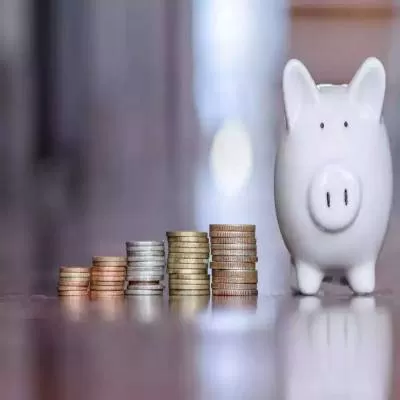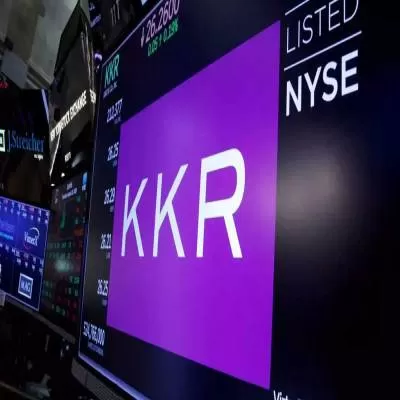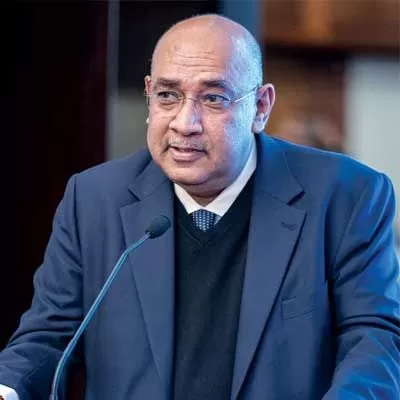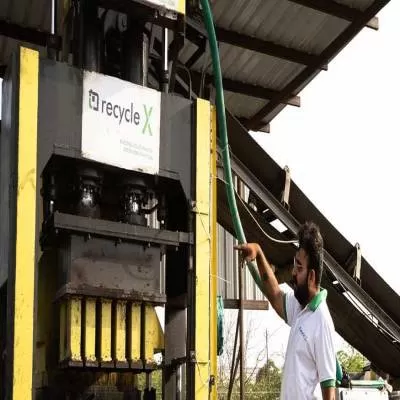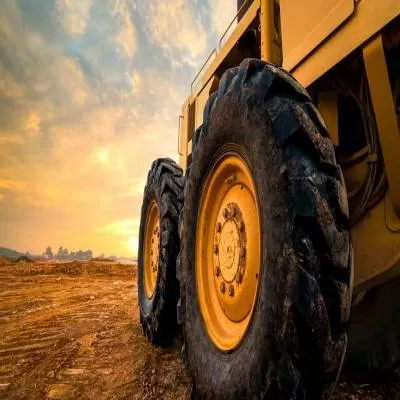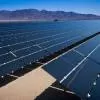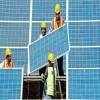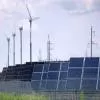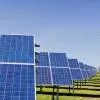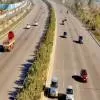- Home
- Infrastructure Urban
- ECONOMY & POLICY
- At MMRC, we have a competent team and are geared up to meet all challenges

At MMRC, we have a competent team and are geared up to meet all challenges
In 2016, Mumbai Metro 3 took a big jump towards fruition when the Mumbai Metro Rail Corporation (MMRC) appointed five consortia for civil work of the project. Contracts were awarded to build tunnels and 26 underground stations in seven packages. While the project is expected to take four to five years to complete, with the expertise of SK Gupta, Director /Projects, it is in good hands indeed. Gupta is a former IRSE officer with 27 years of experience, of which he has spent 17 years at senior positions in Delhi Metro Rail Corp. He shares an update on the Mumbai underground metro and the challenges involved.
The five consortia appointed by MMRC were to prepare designs and start construction by October this year. Has this been achieved?
Five consortia - L&T STEC, HCC MMS, ITD CEC, Soma Dogus and J Kumar - have been awarded seven civil packages for execution of the entire 33.5 km underground corridor. Work in each package includes underground stations and tunnelling in the reach of respective contracts. Each consortium has mobilised its project management team and detail design consultants. The contractors have started works in the field. They have carried out topographic, utility and traffic surveys. They are undertaking geotechnical surveys, in which, more than 400 bore-logs would be taken. In parallel, design and construction of temporary works are in progress. Physical work has already commenced in October 2016 as planned.
Tunnelling work is scheduled to start by next year. What is the timeline set and how is the project progressing?
Tunnelling with tunnel boring machines (TBM) is scheduled to commence by the last quarter of 2017. All our contractors have already placed orders for the TBMs. A total of 16 TBMs will be working on this project. The work of setting up casting yards has also commenced in all the contract packages.
Are there any tenders to be issued for procurement of rakes, signalling, electrification and others?
The activity of prequalification of contractors for implementation of system works, comprising track, signalling, electrification, automatic fare collection and rolling stock is in progress.
What execution challenges do you foresee, especially as this is an underground project?
There are a number of execution challenges in this project. In the words of Dr Sreedharan, this is the most difficult urban infrastructure work ever undertaken in India so far. Line 3 passes through historical and densely populated areas, where a number of buildings are old and the roads are congested. There are limited access roads in the entire corridor to meet the logistical requirement of feeding construction material and removing construction debris. The line passes in close vicinity to high-rise buildings. There are geological challenges as well. In the entire reach, either uniform or fractured rock exists at shallow depth, and will lead to difficulties in excavation. There are land acquisition and R&R related challenges as well. However, at MMRC, we have a competent team and are geared up to meet all challenges.
What expertise do you bring to the table from your past experience that will enable the success of this project?
I had joined DMRC in 1998 as part of its first batch of officers. During my 17 years at Delhi Metro, I have had the opportunity to gain the experience of working in the field units and the corporate office to handle international and national contracts for complex infrastructure works of viaduct, bridges, tunnels and stations and depots, and have gained exposure in all aspects of an urban railway project. I bring with me a strong technical background, experience in developing a vision for the organisation and a track record of ensuring timely execution of projects. I have the ability to maintain interdepartmental coordination among officers, general consultants, contractors and various other stakeholders; and to liaise with the Central Government, state government and other statutory bodies. I have consistently taken initiatives in planning and developing the land and buildings of DMRC into opportunities of long-term revenue stream to make the project more sustainable. I believe I have the skills, aptitude and work ethics that are prerequisites for handling a complex metro project like Mumbai´s Line 3.
- SK Gupta, Director/Projects, MMRC In 2016, Mumbai Metro 3 took a big jump towards fruition when the Mumbai Metro Rail Corporation (MMRC) appointed five consortia for civil work of the project. Contracts were awarded to build tunnels and 26 underground stations in seven packages. While the project is expected to take four to five years to complete, with the expertise of SK Gupta, Director /Projects, it is in good hands indeed. Gupta is a former IRSE officer with 27 years of experience, of which he has spent 17 years at senior positions in Delhi Metro Rail Corp. He shares an update on the Mumbai underground metro and the challenges involved. The five consortia appointed by MMRC were to prepare designs and start construction by October this year. Has this been achieved? Five consortia - L&T STEC, HCC MMS, ITD CEC, Soma Dogus and J Kumar - have been awarded seven civil packages for execution of the entire 33.5 km underground corridor. Work in each package includes underground stations and tunnelling in the reach of respective contracts. Each consortium has mobilised its project management team and detail design consultants. The contractors have started works in the field. They have carried out topographic, utility and traffic surveys. They are undertaking geotechnical surveys, in which, more than 400 bore-logs would be taken. In parallel, design and construction of temporary works are in progress. Physical work has already commenced in October 2016 as planned. Tunnelling work is scheduled to start by next year. What is the timeline set and how is the project progressing? Tunnelling with tunnel boring machines (TBM) is scheduled to commence by the last quarter of 2017. All our contractors have already placed orders for the TBMs. A total of 16 TBMs will be working on this project. The work of setting up casting yards has also commenced in all the contract packages. Are there any tenders to be issued for procurement of rakes, signalling, electrification and others? The activity of prequalification of contractors for implementation of system works, comprising track, signalling, electrification, automatic fare collection and rolling stock is in progress. What execution challenges do you foresee, especially as this is an underground project? There are a number of execution challenges in this project. In the words of Dr Sreedharan, this is the most difficult urban infrastructure work ever undertaken in India so far. Line 3 passes through historical and densely populated areas, where a number of buildings are old and the roads are congested. There are limited access roads in the entire corridor to meet the logistical requirement of feeding construction material and removing construction debris. The line passes in close vicinity to high-rise buildings. There are geological challenges as well. In the entire reach, either uniform or fractured rock exists at shallow depth, and will lead to difficulties in excavation. There are land acquisition and R&R related challenges as well. However, at MMRC, we have a competent team and are geared up to meet all challenges. What expertise do you bring to the table from your past experience that will enable the success of this project? I had joined DMRC in 1998 as part of its first batch of officers. During my 17 years at Delhi Metro, I have had the opportunity to gain the experience of working in the field units and the corporate office to handle international and national contracts for complex infrastructure works of viaduct, bridges, tunnels and stations and depots, and have gained exposure in all aspects of an urban railway project. I bring with me a strong technical background, experience in developing a vision for the organisation and a track record of ensuring timely execution of projects. I have the ability to maintain interdepartmental coordination among officers, general consultants, contractors and various other stakeholders; and to liaise with the Central Government, state government and other statutory bodies. I have consistently taken initiatives in planning and developing the land and buildings of DMRC into opportunities of long-term revenue stream to make the project more sustainable. I believe I have the skills, aptitude and work ethics that are prerequisites for handling a complex metro project like Mumbai´s Line 3.


